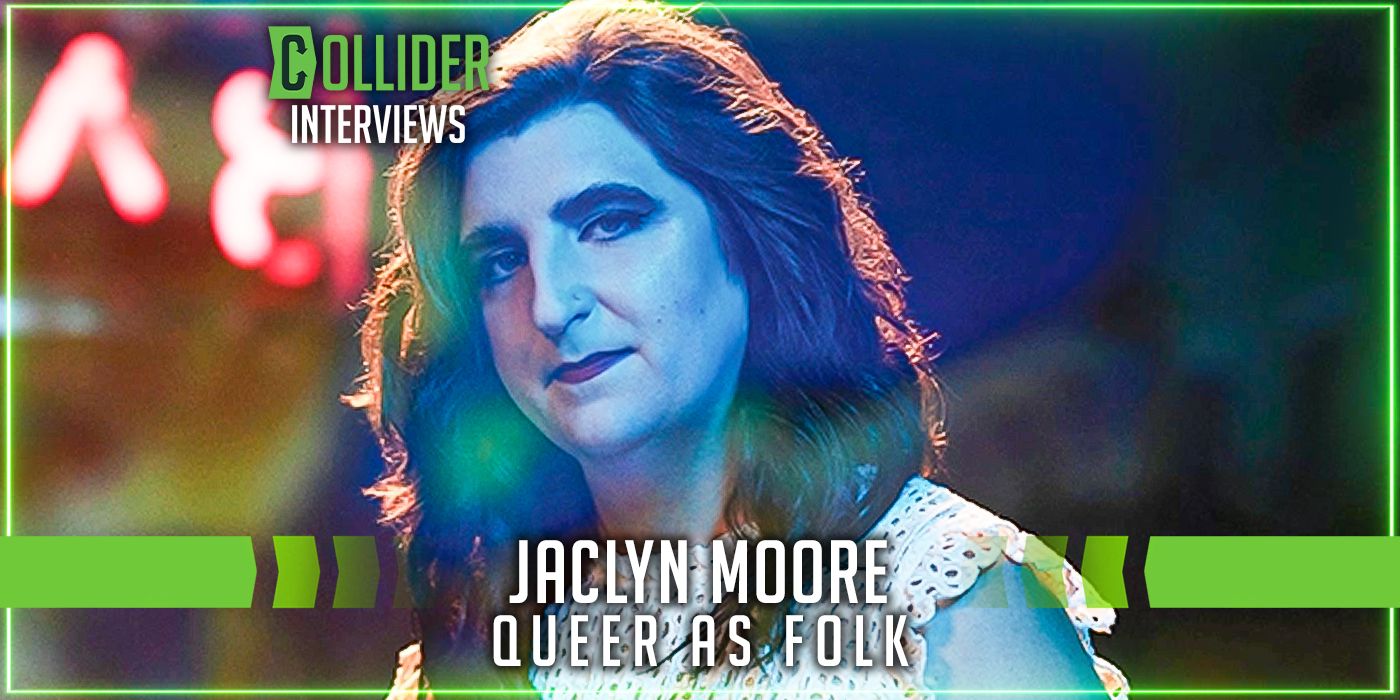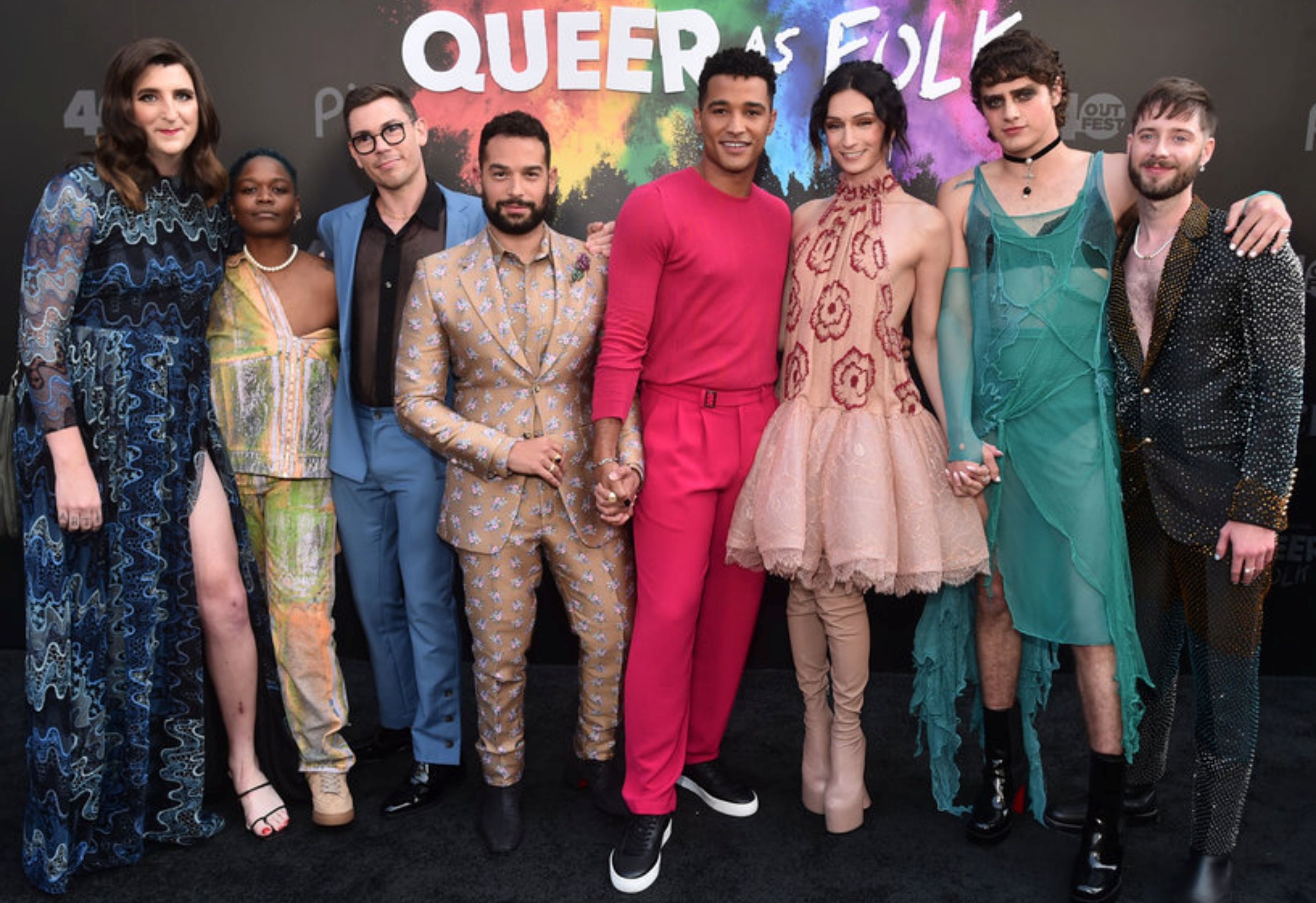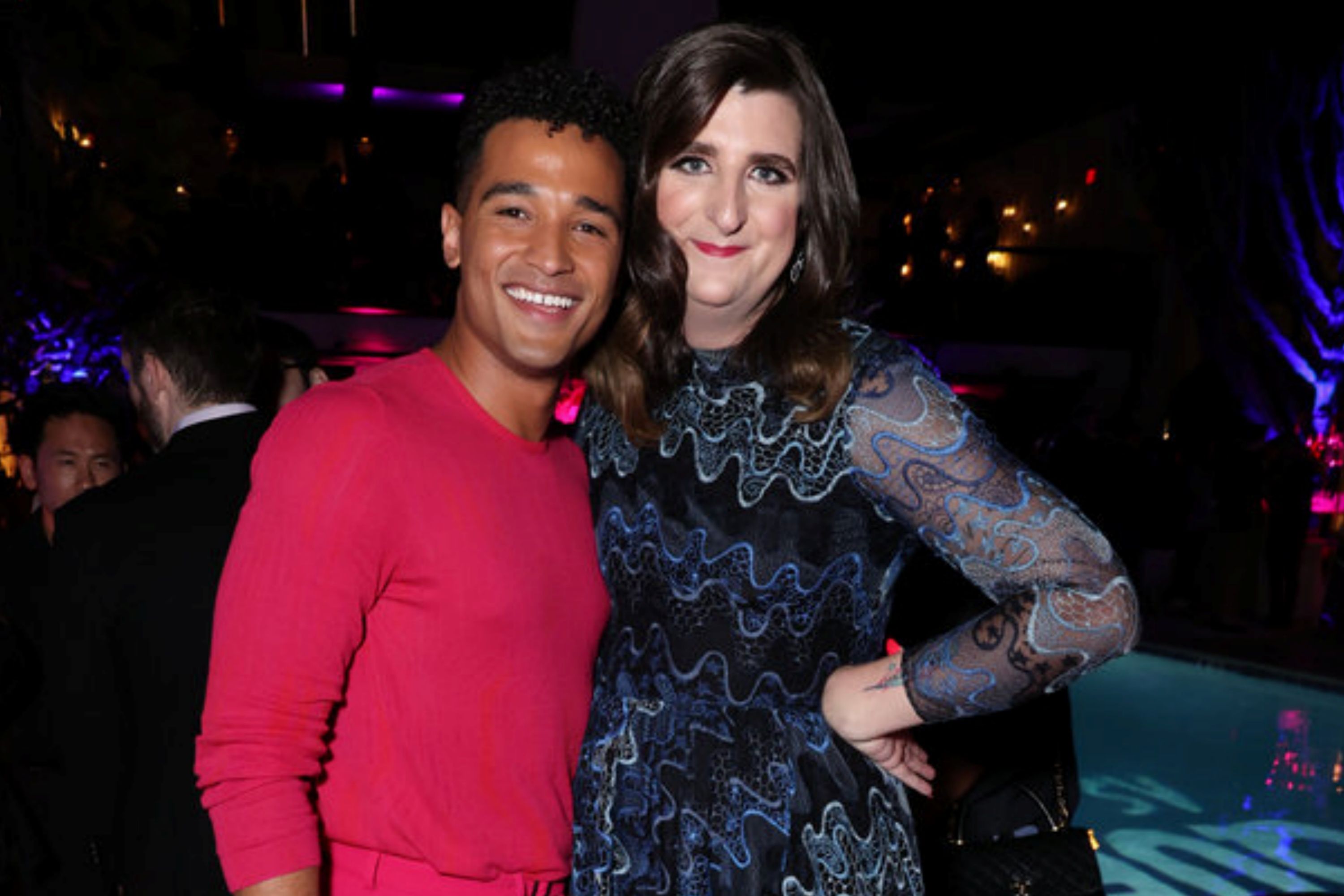[Editor’s note: The following contains spoilers for Queer as Folk.]From show creator Stephen Dunn, the Peacock reimagining of Queer as Folk, inspired by the groundbreaking British series from Russell T. Davies, follows a group of queer and trans friends in New Orleans as they figure out all the messy parts of life and love. When they find themselves reeling after a tragedy, new relationships and resurfaced insecurities lead to even more drama that they’ll have to deal with, in order to move forward.
During this 1-on-1 interview with Collider, executive producer/writer Jaclyn Moore (Dear White People) talked about how she came to be a part of telling this story, why 2022 needs a new Queer as Folk, the importance of trans men and women telling trans stories, the evolution of Ruthie (Jesse James Keitel), and how the very powerful episode “Pretend You’re Someone Else” came about.
Collider: As an executive producer and a writer on this, at what point did you join the show? It was at another network, and then there were COVID delays, so this has floated around for a bit. Where were things at, when you came on board?
JACLYN MOORE: The pilot script had existed, and that was it. It had gone through the development process, at a different network, before I had come on board, and I came on board to help craft and write the season and help produce everything. So, I was there from the beginning of the writing process for the season.
When you heard it was Queer as Folk, did you wonder why they were doing it a third time, or were you curious to find out why they were doing it a third time? What did you see in that pilot script that excited you about it?
MOORE: To be honest, my initial response, when my agent asked me if I would be interested, was to say no because I had that same thought of, “I don’t know that we need another Queer as Folk.” But I read the script, and I got about two-thirds of the way through the script, and I called my agent and was like, “I definitely need to do this. This is incredible.” I feel so dumb in hindsight for not thinking about this beforehand, but I’m a theater kid and a staple of theater is reviving old plays and old musicals and old shows because they mean something different every time you come back to them. I think that’s one of the reasons why this show is a reimagining, as opposed to a reboot.
Queerness in 2022 is vastly different from what queerness was in the late nineties, early two thousands. Even more importantly, what we’re able to put on television about queerness in 2022 is very different from what we could in the early nineties, in the late nineties, or in the early two thousands. Getting to tell modern queer stories and getting to tell trans stories is obviously very important to me, as is getting to tell complicated stories that are not just the trans best friend who says a couple funny things. If we do have the spotlight, then we’re the put upon martyr in a difficult world, and that’s our entire identity.
The truth is, the world is really hard. I was molested on the way through TSA. I have been the victim of violence on the street. These are real issues. And yet, I am also a person who dates and has a very full life that isn’t about my trauma. My trauma informs it, but it’s not about that, and I wanted to tell a story about complicated queer and trans people. And so, reading that pilot, I was like, “This feels like an opportunity to do that.” I was so lucky to get to work with Stephen [Dunn], and we had such an amazing writing staff, with Roxanne Gay, Azam Mahmood, Ryan O’Connell, Des Moran and Brontez Purnell. Just getting to work with these incredible writers to craft a season of really complicated gay and queer and trans stories, where the characters can be messy and still be worthy of narrative, is something that’s really important to me.
I find the trans representation, in particular, on this show so interesting because it feels like the most fully-rounded trans representation that I’ve seen on TV. How did Ruthie evolve? How much was already there? How much did you want to bring to the character? How much developed from collaborating with Jesse James Keitel?
MOORE: It’s all of the above. Ruthie, in the pilot, certainly had seeds of who she is. That’s definitely a character that I put a lot of myself into and a lot of my complications. A lot of the things she talks about are fully or partially autobiographical for me. That was really important to me. I’ve been a messy person, from time to time. It’s hard to be trans. It’s hard to be a person in the world and not be messy, but it’s really hard to be a trans person in the world, where the world is constantly telling you why you’re not allowed to live and why you’re not supposed to be there and why you’re delusional. To be told that all the time, and then to try to have a healthy dating life or be good at your job is complicated. I really wanted to bring that to the character. And then, once Jesse came aboard, after giving one of the best auditions I’ve ever seen, that really sealed it. Jesse and I worked together a lot on the character, and obviously in conjunction with Stephen and the other writers. Ruthie is a full, three-dimensional, complex, messy, troubled but worthy of love, great and funny person. That’s probably the thing I’m most proud of, with the way the show turned out.
How did episode six, “Pretend You’re Someone Else,” come about and evolve into what we see now, with Ruthie both pre- and post-transition and Jesse James Keitel playing both? What were those conversations like, in trying to figure out how to present that and represent that?
MOORE: It was a tough process. That was an episode idea that I brought in pretty early on, as the backstory for that character. That all-boys school is directly based on my all-boys Catholic school, down to the uniforms, which are similar. The way that room looks is styled after my high school. My all-boys Catholic high school was not a great place to be a closeted trans girl. I had young love that was very complicated. There are obviously differences because it’s a TV show, and we’re telling a story about these characters, but a lot of that backstory is pretty fully autobiographical. And then, the question became, how do you portray it? How do you show that? We looked at different ways of doing it. There was a period where we looked at casting a younger, non-binary actor to play that role. And then, Jesse came to me and basically said, “Jaclyn, I will kill you, if you don’t like me play this part.” We talked about it and I realized she was right. She had to do it because the truth is, it’s not that those stories never happen, but in terms of trans stories, they’re unfortunately almost all pre- and post-transition stories told by cis people who cast cis people. It was very important to me that a trans person play the younger version of Ruthie, or Bleep, as we refer to them because we don’t like to say the dead name.
And Jesse worked really hard. We did a lot of hair and makeup tests to make sure that we could get Devin [Way] and Jesse in a position where we felt like it didn’t feel silly. Our hair and makeup department did a wonderful job, and Jesse did such beautiful work, in differentiating those characters. To be honest, it was one of the hardest things to shoot, showing up to set and seeing Jesse dressed that way. Jesse is styled in those scenes the way that I dressed when I was 16 or 17. I had that haircut. I went to that high school. It was very painful. It felt like sharing your baby pictures with everybody. But I’m so proud of that episode. I really love how it turned out.
The other thing I’d wanna say about it is that there’s even a hesitation in our own community of trans folks to tell these stories. We don’t wanna focus on that part of our journey. But I’m a trans woman, and I’m an artist. My whole life is being a trans woman and an artist, so I feel like we have to be able to tell these stories because they’re our stories. That’s a really important story to me because, as it’s seen in the show, it’s really hard to be a baby trans girl, hiding at an all-boys Catholic high school that is telling you that not only are you going to hell, but you’re mentally ill, or you’re unworthy of love, or you’re broken. It’s very important to me to tell that story because, if Queer as Folk is any indication, there will be young trans folks and young queer folks that watch this show that are gonna see themselves in it, in a way that maybe they don’t see themselves in every show. And if there’s a young, pre-transition girl or boy out there who sees themselves in that story and sees where Ruthie ends up, and sees that Ruthie is this unapologetic, beautiful, funny person who’s living a very full life, and sees both of those things next to each other, I hope it helps.
We’re at a place where trans people are under attack in this country. Trans kids are constantly being told that they need to just shut up, and people who wanna help trans kids are being characterized in all sorts of unflattering, awful, dangerous ways. I really hope that trans kids who don’t feel safe see this and see that they too can live the life that they deserve and that they wanna live, and that they can find happiness. If I had seen that when I was 16 or 17 years old at Saint Ignatius High School in Cleveland, Ohio, maybe I wouldn’t have waited until I was in my early thirties to finally get to be myself. I don’t know a single trans person who wishes they had waited longer, so I hope, if that story can do that for people, then that would be something really special.
Queer as Folk is available to stream at Peacock.



